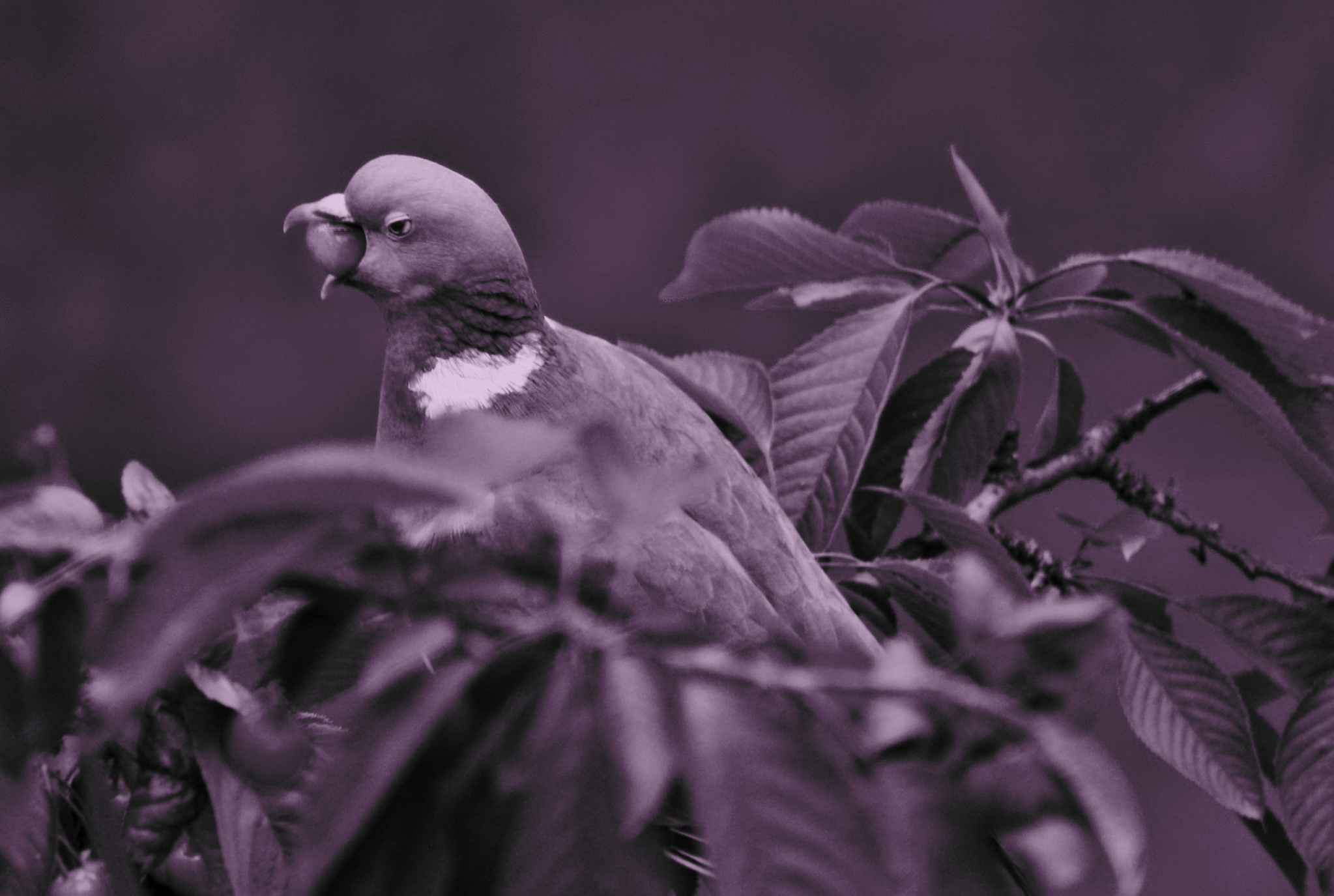Content warning: contains discussion of depression
I’ve begun some sort of relationship with a wood pigeon.
It sits on the fence that divides my garden from my neighbour’s garden. I can see it out my window, next to where I lie in my bed all day.
Since March this year, all I’ve done is work on spreadsheets on my computer, sending books to people across the UK.
My computer is coming apart—it’s missing a screw and every time I open a new window it stops and thinks, erasing work, or shutting down. I try to treat it kindly, and then get angry and curse at it.
Me and my old, lagging laptop lie in my bed all day. I barely even watch TV, because my eyes are so tired from checking and double-checking that this copy of Normal People is going to the right address in York, and so on.
If I want a break, I just stare out the window.
The wood pigeon has two main friends, another wood pigeon and a little robin.
One game is to both alight from the fence at the same time and to make for the back of an old wooden garden chair.
They swoop each other, and fly back and forth along the fences.
One day, I am outside reading a book called How To Do Nothing, by writer and artist Jenny Odell. The wood pigeon is there as well, picking at its feathers, looking about. This book is about being happy to just stare at birds. I am not reading well. The words are barely going into my head. I try to force focus by highlighting and rewriting out important lines. I go inside to get a snack, or go to the toilet. When I come back out, the wood pigeon has flown away. It has done a massive shit right on my book. Ha ha.
My antidepressants aren’t working. I’ve been on them for almost eight years now, and all they make me do is forget things and sleep. My body has an enormous weight to it. Each foot feels like it is wearing too-thick socks and heavy boots. I would like to go barefoot so that I don’t add to the weight, but you can’t go barefoot in London, even if you’re careful not to step on any glass or any shit or anything else bad. People look at you strangely for that, even in the summer. I had to leave my barefooted ways back in Australia, where I also left my year-long tan.
My boyfriend has been going for such long walks. Hours sometimes. I wait for him at home. I don’t like to go out. My body feels even heavier now it isn’t used to forced perpetual movement. My feet are soft and swell up when I put them in sneakers.
I can make it 100 metres to the park, some days. There, a great meeting of street pigeons is always scrabbling about on a gravelly patch of almost-grass. I have no idea why they spend so much time there, in such large groups. They hang about like it’s their job.
One day my boyfriend and I walk over to see what it is the street pigeons are really doing—is there food on the ground, for example? We try not to alert them, but they sense us coming and ascend together in a staircase formation. They’re so connected to each other.
We peer about where they stood, but there is nothing we can see on the ground, no reason to make the area special.
I remember back home I had a friend who was doing her PhD on ecosexuality and Chaucer’s Parliament of Foules. I think about the Parliament of Foules when I see the pigeons communing on the gravelly grass, and I also of course think about our current Parliament of Fouls. As I understand it, Chaucer’s poem is mainly about a bunch of important man birds getting together to agree on which of the woman birds they will get to have sex with.
I never do any research on the birds. I never think to look up, say, “do wood pigeons have fun and play with their friends” or “why do pigeons like massive groups”, or “why do wood pigeons not hang out with regular pigeons”.
I prefer to answer these questions with my own observation and anecdote, and my vague remembrances of poems. It is clear to me that wood pigeons have a dry sense of humour, for example, and that they prefer to make one or two good friends based on shared interests, rather than hang in big groups in which you may feel just as isolated as you have felt alone at home this year.
The summer has passed. I am not seeing the wood pigeon as much. When I think I see it, I’m no longer sure if it’s the same one.
Pema Monaghan (twitter, instagram) is a Tibetan-Australian writer and journalist living in London. Pema has recently published work in The Willowherb Review, Ache magazine, gal-dem, Extra Teeth magazine, and with Three of Cups press. Along with the artist Oscar Price, Pema runs Takeaway Press, a small house that publishes collaborations between artists and writers. Pema is currently working on her first novel.
Image based on Wood pigeon swallowing whole fruits although close to suffocation by AnetteWho under a CC BY-NC-SA license, and released under the same license.
